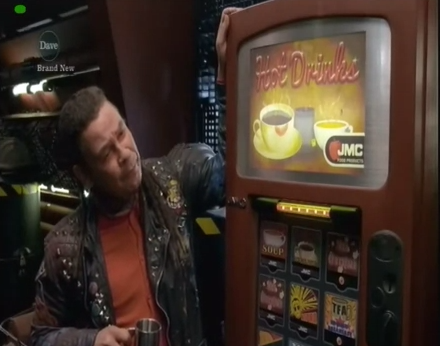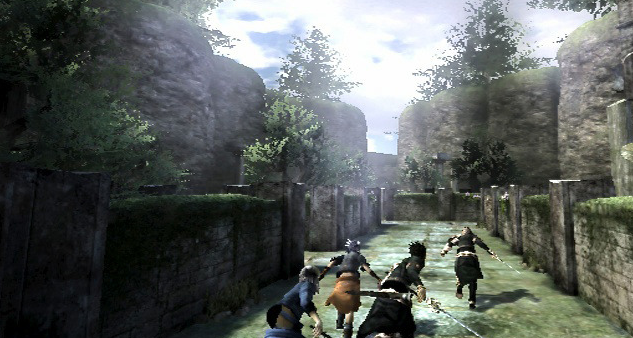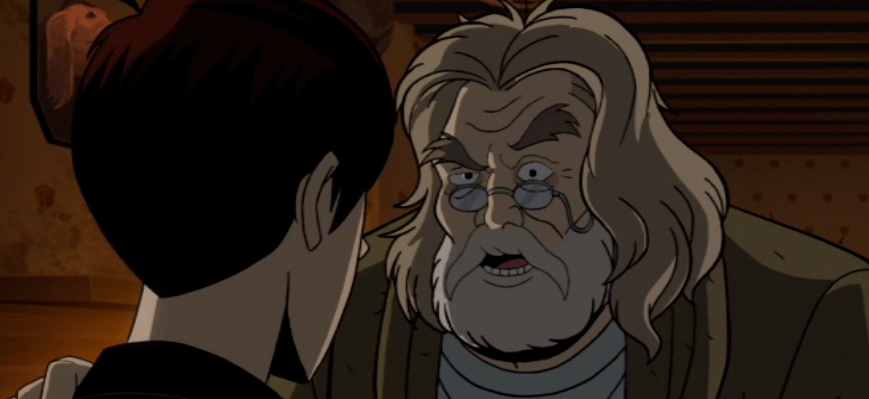If there’s one thing I’ve learned from Red Dwarf X, it’s that Doug Naylor finds it hilarious when characters talk to machines with funny voices.
If there’s a second thing I’ve learned from Red Dwarf X, it’s that I don’t find it particularly hilarious when characters talk to machines with funny voices.
First, the good: there’s far less vending machine romantic mayhem in this episode than I expected. However when “the good” is just relief that the pile of shit is smaller than it could have been, “the good” really reveals itself as a relative concept indeed.
Now, the rest: it just wasn’t funny.
I wish it was.
I really, well, true, and honestly wish that I could laugh the way the studio audience was laughing, but nothing was really…you know…all that good.
Okay, fine, some more good: the dialogue wasn’t awful. It was sub-par, certainly, but not offensively bad the way the Shakespeare scene from a few episodes ago was, or as absolutely everything in the first episode of the series was. But I think there’s a world of difference between “not awful” and “good,” and “Dear Dave” didn’t seem interested in exploring that world.
The plot, as it is, kicks in around halfway through the episode when out of nowhere — and after a particularly terrible setpiece involving charades — the mail arrives. Lister finds a letter from three million years ago suggesting that he might have fathered a child. Then we forget about that for a while until it’s time to end the episode and we get a definitive answer. Spoiler: it’s the one definitive answer we could have gotten without gleaning any insight into the characters.
That’s that, then. The plot is dealt with in two scenes and maybe mentioned in two more. So what do we do the rest of the time? Have Lister hump a vending machine, have Rimmer argue with the MediBot — off-camera, thank Christ — and have Kryten take all of the toilet paper away so that The Cat can walk around for a while with shit in his crack.
If any of that sounds like classic Red Dwarf to you then congratulations, you’re in for a treat. For me, I couldn’t help but feel disappointed that Doug at last gave us a full episode about what the crew’s downtime was like…the dead space between adventures…that avenue of quiet comedy between the interesting parts of the characters’ lives that endears me so endlessly to The Venture Bros.…and it was this padded and flat.
Previous bottle episodes like “Marooned” and “Duct Soup” both dealt with extenuating circumstances. In “Marooned” we had Rimmer and Lister in a crashed Starbug, so their exchanges, though now legendary, weren’t representative of their “normal” ones. And in “Duct Soup” Doug had deliberately steered Red Dwarf into a nearby sun so that he could destroy it before it got any worse WHOOPS I MEAN KRYTEN DID THAT SUN THING FOR A DIFFERENT REASON, so, again, even though it focused on the smaller interactions between the characters it was doing so with an adventurous backdrop.
Here we don’t have that. That’s a good thing. This is a chance to learn something first-hand about the crew that we’ve only been able to guess before, which is what they do when they aren’t doing anything.
As characters, they continue to exist when the cameras aren’t rolling. They do things between episodes. Sometimes we hear about them, but usually we don’t. As characters, they live. As characters, they breathe. As characters, they are.
What “Dear Dave” cements for us is that they aren’t. They’re not characters…they’re puppets reciting lines from a lifeless script. This is their downtime, and there’s nothing for them to do. They can’t live their lives because they don’t exist unless they’re making funny faces or arguing with machines or lusting repulsively after women.
These aren’t people anymore. If they were people, we wouldn’t have to contrive ridiculous situations in which they could be caught rubbing their cocks against vending machines. What did that say about Lister’s character? What did that reveal about him? To what facet of his personality was it true? It didn’t even work in a logistical sense…how in shit’s name did he intend to pick up the vending machine while lying on top of it?
No part of this works unless you find grown men grinding their genitals against machines funny. Maybe you do. I’m not judging you. But if you don’t, “Dear Dave” leaves you with some pretty slim pickings.
It just wasn’t funny. The dialogue was decent, but only decent. None of the physical comedy worked for me, and the only laugh — though I confess it was a big one — came from The Cat trying to keep Lister from picturing his ex-girlfriend with another man. Granted, that was itself a pretty direct lift from “Duct Soup,” where it was also the only funny thing in the episode, but I’ll take what I can get.
The biggest crime “Dear Dave” commits is that it’s just there. As the years go by I doubt I’ll warm up to “Trojan,” but at least I’ll remember it and think about it. “Dear Dave” doesn’t even feel like something I’ll remember next week.
Maybe one day I’ll see a clip somewhere of Lister fucking the vending machine and think, “Oh yeah…that fucking happened.”
But otherwise, I doubt it’ll leave any impression at all.
I can’t even say that this is the episode that made me realize the characters aren’t really characters anymore, because that happened around 20 episodes ago.
“Dear Dave” had every opportunity to make me reconsider that realization, though. It could have shown me that they’re still funny. They’re still real. They still have identifiable hopes and dreams, and that even if I’m not keen on their adventures anymore at least they still really are.
Instead we humped a vending machine and walked around with shit drying in our asses. And it was just as fun as it sounds.
Roll on the final episode, please.


